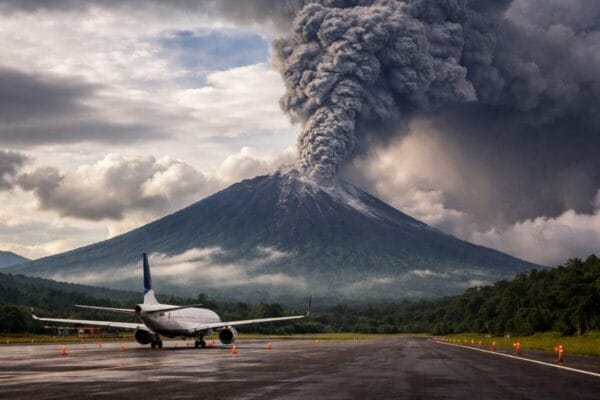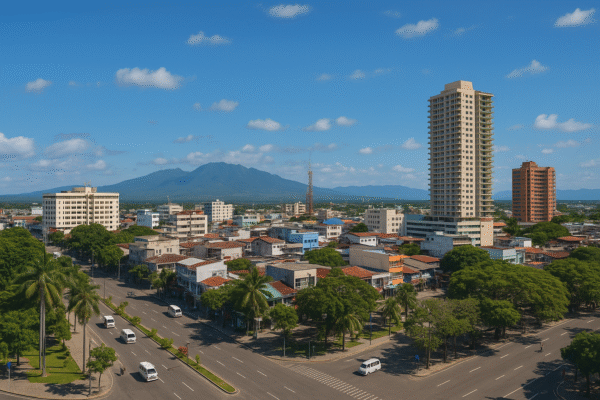Davao City, Philippines – In a significant boost to its growing reputation as a secure travel destination, Davao City has been named the second safest city in the Philippines for 2025 by the World Travel Index (WTI). The international ranking, which evaluates safety based on resident feedback, digital sentiment analysis, and on-ground surveys, highlighted Davao for its consistently low crime rates, public discipline, and strong community trust in law enforcement.
With an impressive safety score of 80.73, Davao closely follows Dumaguete City, which topped the list with 81.36. Out of over 3,000 cities analyzed globally, Davao ranked 1,132nd, placing it among Southeast Asia’s most trusted urban destinations for both residents and international visitors.
What Makes Davao Stand Out?
Davao’s score is based on five critical safety indicators used by WTI:
- Daytime safety: 89.12
- Nighttime safety: 83.12
- Low theft risk: 77.13
- Low drug activity: 72.57
- Low violence rates: 80.89
These scores reflect strong local governance, disciplined public behavior, and sustained community engagement. Residents, travelers, and business owners alike consistently cite Davao’s responsive emergency services, clean streets, and visible police presence as top contributors to their sense of safety.
The city’s success has not come overnight. Davao has steadily built a reputation for law and order through decades of governance focused on urban security. Its blend of technology-driven surveillance systems, curfews, and strict enforcement of local ordinances has made it a benchmark for other Philippine cities striving to enhance public safety.
Regional Consistency in Safety Performance
Davao’s recognition in 2025 is part of a longer trend. In 2024, it was already among the top three safest cities in Southeast Asia, trailing only behind major cities in Thailand and Singapore. That earlier ranking sparked renewed local efforts to improve citizen safety, and the momentum carried over into this year’s even higher national ranking.
According to the Davao City Police Office, crime rates—particularly theft and petty offenses—have steadily declined thanks to increased patrol visibility, CCTV network expansion, and community policing initiatives. The city also collaborates with barangay councils and youth groups to curb drug use and prevent violence at the grassroots level.
Other Safe Cities Making Headlines in 2025
Davao is in good company. Several other Philippine cities earned high marks in the WTI safety index for 2025:
- Bulacan – 76.42
- Balanga, Bataan – 76.15
- Lucena, Quezon Province – 75.24
- Naga City, Camarines Sur – 75.02
- Baguio City – 73.99
- Puerto Princesa & Legazpi City – 71.34 (tied)
- Makati City – 70.41
Each of these cities showed excellence in various aspects of safety, from low crime statistics to citizen satisfaction with emergency response systems and municipal cleanliness.
How the Safety Scores Are Calculated
WTI’s methodology mirrors the Numbeo Crime Index and combines AI-driven data collection with user-supplied feedback. It includes inputs from social platforms like Reddit, Quora, and travel forums, cross-verified with analytics from over 50 million travel-related websites. The safety index measures public perceptions and real-world experience of crime, violence, drug prevalence, and overall trust in authorities.
Additional metrics such as transportation reliability, urban hygiene, and food safety standards are also tracked in broader destination assessments released quarterly by WTI.
Why Safety Rankings Matter to Philippine Tourism
As global tourism recovers in the post-pandemic era, safety is now a top priority for travelers, particularly for family tourists, solo female travelers, digital nomads, and event organizers. In this environment, Davao’s high safety ranking makes it a strategic draw for conventions, eco-tourism, cultural visits, and long-stay travel.
According to the Philippine Department of Tourism (DOT), cities with higher safety rankings tend to receive more inquiries from foreign tour operators and international airlines. Davao, with its stable reputation and growing infrastructure, is well-positioned to capitalize on this global demand for safe urban experiences.
A Model for Urban Safety Governance
Local officials, including Mayor Sebastian Duterte, emphasize that Davao’s strength lies in its long-term planning and collaborative governance. “Public safety isn’t just about policing—it’s about building trust, ensuring transparency, and involving the community,” the mayor stated in a recent address.
Indeed, Davao’s example shows that safety can be achieved through sustained investment in public services, active citizen participation, and a strong legal framework. As other cities look to enhance their appeal to international visitors, Davao offers a proven blueprint of what works.
Looking Forward: What’s Next for Davao?
As travel agencies and global tourists increasingly use safety rankings to shape their itineraries, Davao’s strong performance in the WTI index ensures it remains a top-tier destination in the Philippines. With a strong civic foundation, continued infrastructure improvements, and a commitment to inclusive development, the city is expected to retain and possibly improve its safety status in the years ahead.
For travelers seeking a well-run, secure urban destination that combines natural beauty with civic order, Davao stands out as a premier choice in Southeast Asia.
For more travel news like this, keep reading Global Travel Wire


















